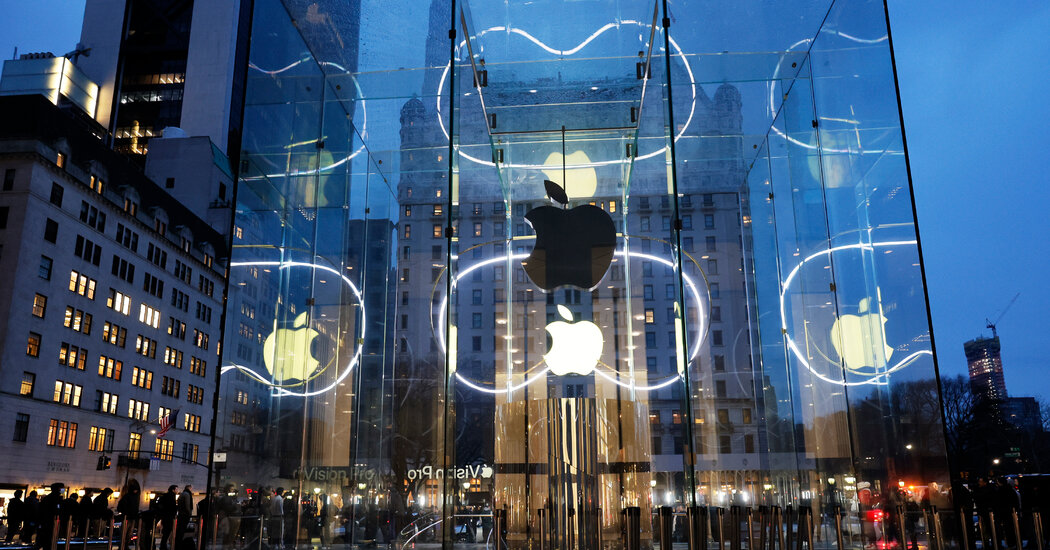
 Technology
Technology 
Days after Epic Games, the maker of Fortnite, complained publicly that Apple had blocked it from starting a competing app store in Europe, the technology companies said Apple had reversed course and would allow Epic to go ahead with its plan.
The reversal highlights the way that Apple is changing its operations to comply with a new European tech competition law. That law, the Digital Markets Act, which went into effect on Thursday, requires Apple to give app makers alternatives for selling software to iPhone and iPad users, including the ability to use competing app stores and payment systems other than its own.
By opening up the iPhone to competing stores, European regulators hope that smartphone users across the region will benefit from lower prices. Epic Games, which planned to start a competing app store, currently takes a 12 percent commission for every game it sells on personal computers and other platforms. The fee is less than half of the 30 percent that Apple typically collects.
“People ask: Why do you need another app store?” said Justin Kan, one of the founders of the video game streaming service Twitch and the creator of Stash, an open payments platform for video game companies. “But competition generally creates lower prices. Ultimately, it’s probably good for Apple because it could grow the market of apps.”
Apple and Epic have been feuding over App Store commission for years. In 2020, Epic broke the App Store’s rules by encouraging customers to pay it directly for features in Fortnite. Apple threw Epic out of the App Store, and Epic sued Apple for violating antitrust law by requiring developers to use its payment system.
The feud was reignited in the wake of Europe’s competition law. Epic planned to start a competing app store called the Epic Games Store through a subsidiary in Sweden. Initially, Apple granted the subsidiary, Epic Games Sweden A.B., a developer account so that it could access the software tools necessary for the release.
But Apple later terminated Epic’s account, saying that it couldn’t trust Epic to follow its rules. Apple also complained that Tim Sweeney, Epic’s chief executive, had called Apple’s plan to comply with the new tech law “hot garbage.”
On Wednesday, Mr. Sweeney said that he had assured Apple that Epic would follow the rules. He also released emails where he made those assurances directly to Apple.
An Apple spokesman said Friday that Epic had committed to following its rules, including its policies in Europe.
Mr. Sweeney said that Apple changed its plan after a “swift inquiry” by European regulators. He called it “a big win for European rule of law, for the European Commission, and for the freedom of developers worldwide to speak up.”
24World Media does not take any responsibility of the information you see on this page. The content this page contains is from independent third-party content provider. If you have any concerns regarding the content, please free to write us here: contact@24worldmedia.com